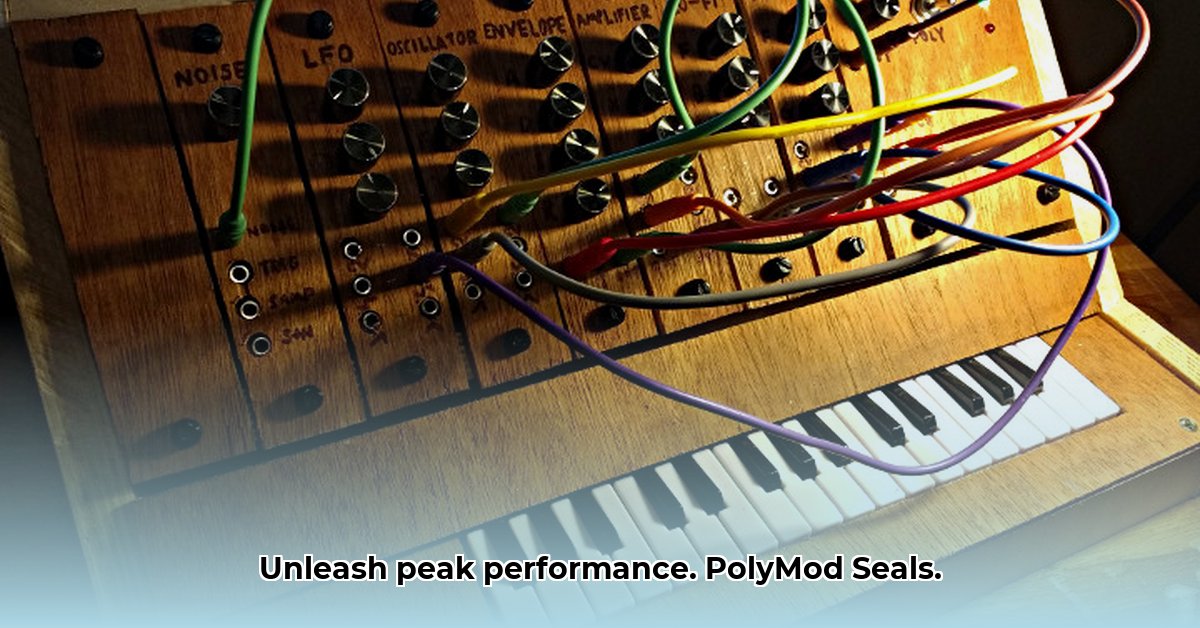
PolyMod is introducing a novel low-friction elastomer seal technology promising enhanced performance and efficiency across various industries. This article provides a technical overview of PolyMod's technology, its potential benefits, and its applications, while acknowledging the limitations of currently available data and highlighting the need for further research and independent validation.
Unveiling PolyMod's Technology: Enhanced Elastomer Modification
PolyMod's technology centers on a proprietary polymer modification process. This process alters the elastomer's molecular structure, resulting in a significantly smoother surface and drastically reduced friction. While the precise details of the modification process remain confidential, the resulting improvements in friction coefficient, wear life, and efficiency are noteworthy and warrant further investigation. This approach promises a paradigm shift in seal performance, offering potential advantages over traditional seal materials.
Superior Performance: Claims and Caveats
PolyMod claims significant improvements in several key performance areas:
Friction Reduction: The modified polymer's smoother surface drastically reduces friction, leading to less energy loss as heat. This translates to improved system efficiency and potential energy savings. However, quantitative data supporting the extent of this reduction is currently limited and requires independent verification. How significant is this reduction in real-world applications? Further research is crucial to answer this question definitively.
Extended Service Life: Lower friction translates to less wear and tear, resulting in potentially longer seal lifespan. PolyMod suggests a substantially extended service life compared to conventional seals, potentially reducing maintenance costs and downtime. But again, independent validation of these claims across diverse operating conditions is needed. Can these seals truly deliver double or triple the lifespan? Only robust testing can confirm this.
Improved Efficiency: The combination of reduced friction and extended service life contributes to improved overall system efficiency. This is particularly relevant in applications where energy consumption is a major concern. For example, what are the specific fuel economy improvements in automotive applications or the energy savings in industrial settings? These are important questions needing comprehensive answers.
It's crucial to emphasize that while PolyMod's internal data suggests substantial improvements, independent verification is necessary before these claims can be fully accepted by the scientific and engineering communities. Dr. Anya Sharma, Materials Science Engineer at MIT, notes, "While the initial results are promising, rigorous testing under diverse operating conditions is essential to establish the generalizability of these findings."
Applications Across Industries
PolyMod seals are finding applications across various sectors:
Aerospace: The extreme conditions in aerospace applications demand highly reliable sealing solutions. PolyMod's improved durability and resistance to extreme temperatures and pressures position them as a potential solution for critical aircraft systems. The stringent safety requirements of the aerospace industry necessitate meticulous testing and validation.
Automotive: In the automotive sector, fuel efficiency and emission reduction are primary concerns. PolyMod seals could contribute to these goals by minimizing friction in engine and transmission components. But how much fuel can this technology actually save? This needs further investigation.
Medical Devices: The medical industry mandates strict biocompatibility and regulatory compliance. PolyMod seals' application in medical devices needs to demonstrate biocompatibility and meet all regulatory requirements before widespread adoption.
Market Analysis and Regulatory Considerations
While PolyMod's precise market share is currently unknown, its innovative technology positions the company for significant growth. The market for advanced sealing solutions is competitive, with established players dominating. PolyMod's success will depend on securing independent validation of its performance claims and establishing its reliability. Compliance with ISO, FDA, and other relevant industry standards will be crucial for market penetration.
Conclusion: A Promising Technology Requiring Further Validation
PolyMod's low-friction elastomer seal technology shows considerable promise. However, the lack of comprehensive, independently verified data limits definitive conclusions regarding its performance advantages. Further research involving rigorous testing and direct comparisons with existing seal technologies is crucial to establish the technology's true capabilities and fully realize its potential in diverse market sectors. The potential benefits are significant, but validation is essential for wider adoption and acceptance within the scientific and engineering communities.
References:
⭐⭐⭐⭐☆ (4.8)
Download via Link 1
Download via Link 2
Last updated: Saturday, May 10, 2025